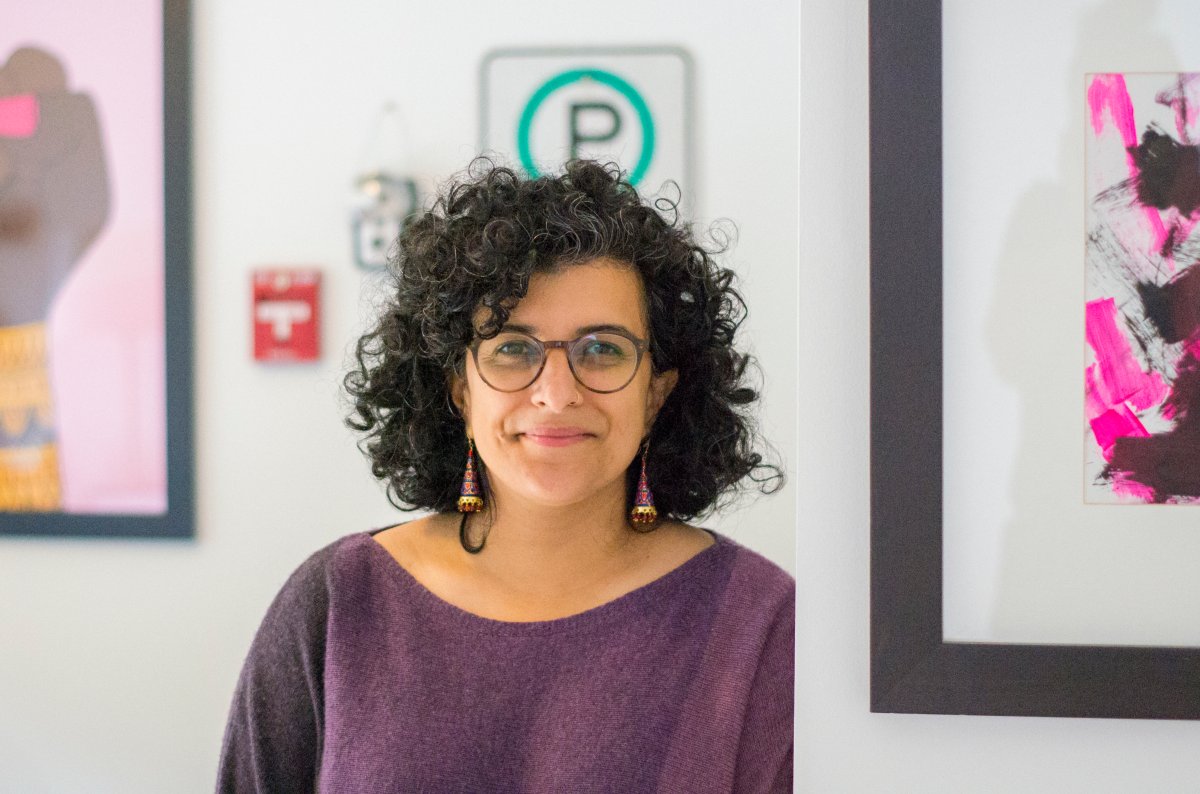Jag Nagra uses her art to inspire people to live unapologetically.

“I find it really healing for me. To be able to represent the different aspects of my identity through my art,” she told Global News.
“Being a brown woman, being queer — all these different things can come together, and I can create something that empowers.”
The self-taught illustrator who lives in Pitt Meadows with her wife and two children is deeply passionate about ending the cultural and social stigma against LGBTQ2 people, especially within the South Asian community.
Nagra said she struggled with telling her family about her sexuality, and came out to her parents in her early 20s.
“I have one older brother and he is also gay,” she said. “So my family found out very close together about the both of us, which I think was really jarring to them because no one really talks to South Asian parents about what that means. They’re just not educated in it so it was quite a shock.”
But, she said, they were open to learning and accepting their children’s truth.
“My parents leaned on their friends for help, and they had a community of support around them which helped them understand,” she told Global News. “I am really proud of them for standing up for us.”
- Joffre Lakes to close for 3 periods this year under agreement with First Nations
- ‘Why aren’t we doing more?’ White Rock on edge with killer on the loose
- B.C. carjacking victim says she doesn’t trust the ‘catch-and-release’ system
- Inquest into fatal Surrey hostage-taking recommends cameras for ERT teams
Alex Sangha, founder of Sher Vancouver, said he started the non-profit organization in 2008 because there was virtually no education or support available for queer South Asian kids and their families.
“Tradition plays a big role in the South Asian community. Even though your faith may say, ‘Love everyone, we’re all equal, and we support each other as human beings,’ we have grown up in a culture that puts emphasis on (being) married to the opposite gender and having children,” Sangha said.
“It’s an adjustment for the family to try and understand gay relationships. I have not been accepted by everyone in my family – it is getting smaller and smaller. It’s a deep-rooted pain that we deal with all of our lives.
“A lot of gay kids are at risk of suicide, isolation and depression. I tell parents this all the time: ‘It may take you long to understand your child, but don’t do anything to hurt them.’”
He said his 2021 award-winning documentary, Emergence: Out of the Shadows, which also features Nagra, has sparked much-needed dialogue and awareness.
“It shows how far we have come, and how far we still have to go,” he said.
“We made this film because there’s little to no content about local Punjabi Sikh queer kids coming out to their families, whom you actually get to hear from as well. It’s pioneering stuff.”
Nagra said the more she discovered about herself, the more purpose she found in advocating through her creativity.
In 2006, she graduated from the Art Institute of Vancouver and worked as a graphic designer for a number of years, including at a travel marketing company.
“It was just so different from what I imagined,” Nagra said. “It kind of felt like a soul-sucking job, but I thought if I quit, then I don’t have much other experience for anything else.”
In 2012, she set out to teach herself how to illustrate in 365 days, and things started to take off.

“In 2019, I got involved with the Punjabi Market Collective, a non-profit organization that has been working to revitalize Vancouver’s historic Punjabi Market. That is when I really got involved with my South Asian heritage, and my art started to flourish from there.
“I never used to draw brown skin. I never used Indian motifs. And that’s very much a part of what I do now. There is a direct line of when it all connected.”
Nagra’s projects have been celebrated across the Lower Mainland, including the Vaisakhi- and Diwali-themed jerseys for the Vancouver Canucks, the Nazar Battu mask-inspired lanterns for LunarFest at the Vancouver Art Gallery, a number of public murals, and most recently, the Love is Love Pride Stairs at the Guilford Town Centre in Surrey.
She said these opportunities are a way to push her message of supporting queer people of colour and giving them more visibility.
“I feel grateful to know that kids are being educated about these topics from an earlier age,” Nagra said.
“While society is progressing, there is still a lot of education that has to happen. There is still a long way to go in the South Asian community.
“I know lots of people still who come out to their families and they are forced into an arranged marriage, or they are ignored. But through discussion, through giving people the spaces – that’s where you make the change.”

The visual artist said through the support of her network and her loved ones, she finally feels like she belongs.
“I’ve spent the majority of my life not fitting in. I grew up in the suburbs of Maple Ridge with very few South Asian families around us – an outsider. Being queer in the South Asian space – again, an outsider,” Nagra said.
“Now, I am at a space where I had to create my own sense of belonging. But it feels great to own that for the first time. And I am hopeful.
“Hopefully, this paves the way for other people who will see that there’s this queer, brown, Punjabi woman achieving things, and it gives them the inspiration to do the same.”






Comments